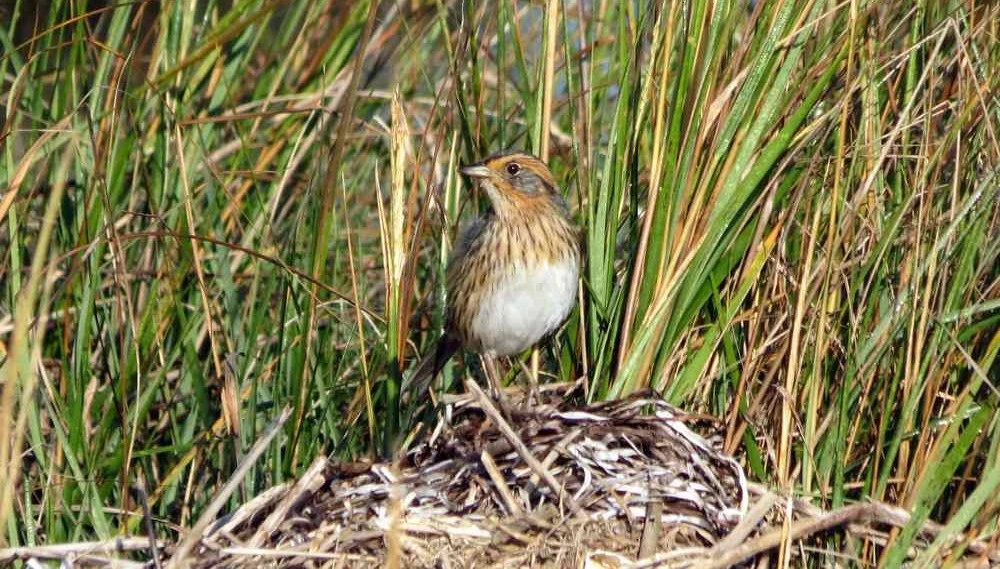This is a saltmarsh sparrow, an Endangered bird that nests in coastal salt marshes.
At Jacob’s Point salt marsh in Rhode Island, a group of citizen scientists is working to save the species—believed likely to go extinct by mid-century—from drowning in its own habitat.
Historically, these birds built nests in higher-elevation marshes, safe from flooding. But centuries of coastal development have removed much of this terrain, forcing the sparrows into lower-lying areas like Jacob’s Point, where nests are regularly inundated by high tides.
For the past decade, the Needle in a Haystack Society has been monitoring and intervening to protect the birds. Their solution is ingenious: by placing a rigid coffee filter beneath the sparrows’ conical nests of intricately woven grass, the nest—including eggs or chicks—floats safely until floodwaters recede.
Not all experts are enthusiastic—some caution that mother sparrows are sensitive to nest disturbances—but the Society’s unpublished findings are promising. Their “coffee filter arks” prevent nest drownings in all but 8% of cases, with no observed abandonment by parent birds. By contrast, unsecured nests drowned 18% of the time during extreme tides.
Monitoring, however, has its harsh side. The team has recorded nests and chicks lost to floods and high tides, underscoring the urgency of their work.
Although the saltmarsh sparrow has been on the Endangered Species Act waitlist for nine years, the Society fears protection may come too late. Yet recent research offers hope: evolutionary biologist Chris Elphick and his team found that declines in the species have slowed and populations have even increased. Their study also suggested that habitat quality—rather than sea-level rise—is the strongest predictor of long-term survival for coastal birds.
If formal protections are implemented, these specialized songbirds may thrive once more, continuing to build their curious nests. And thanks to the dedication of the Needle in a Haystack Society, dozens of chicks have already survived the rising tides to do just that.
